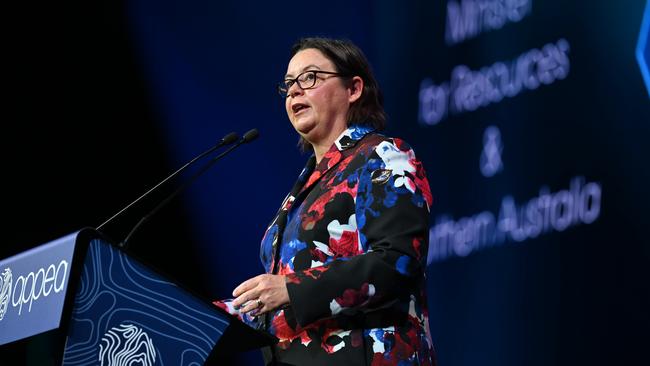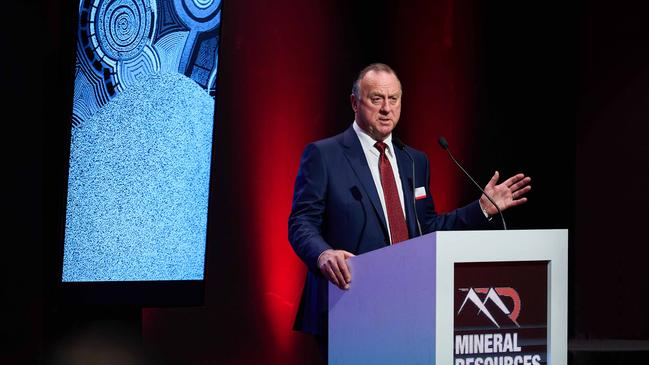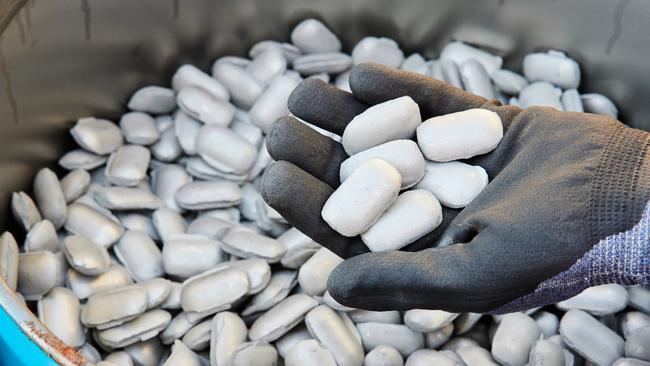Critical minerals strategy is ‘empty rhetoric’, says MinRes boss
Resource industry heavyweights say the government must move fast to capitalise on the boom in demand for critical minerals.

The federal government needs to do more, and quickly, to ensure Australia capitalises on the coming boom for critical minerals, according to mining industry leaders who expressed disappointment in the government’s strategy to grow the sector.
Resources Minister Madeleine King released the strategy document on Tuesday, including a promise to look at ways to streamline critical minerals mines and $500m from the Northern Australia Infrastructure Facility to help develop future mines and processing centres.
But it contained no other offers of direct financial support, and mining billionaire Chris Ellison, whose Mineral Resources is the biggest Australian-owned lithium producer, immediately labelled the strategy “empty rhetoric” that included little meaningful investment in the growing sector that would risk losing investment to jurisdictions such as the US that were offering big assistance packages to ensure security of supply.

“This missed opportunity will keep Australia handicapped in the global race to capture more value from our battery minerals,” Mr Ellison said.
“Real action like tax incentives, fast-tracked approvals and financial assistance are urgently required if the government is serious about competing in a post-Inflation Reduction Act world.”
Ms King defended the long-awaited strategy in the face of industry criticism on Tuesday, saying it was aimed at setting out a framework and a strategy to allow the government to give targeted support to industry in the future.
“We’re not handing out the baubles of cash that people have become accustomed to, perhaps; we’re setting out a framework and a strategy so that government can make decisions in an orderly fashion in relation to supporting this industry,” she said.
“And this strategy will inform future budgetary commitments of the Albanese Labor government.”
While key lobby groups, including the Minerals Council of Australia and WA’s Chamber of Minerals and Energy (CME), welcomed the strategy as a recognition of the growing importance of the sector, industry groups said the government needed to move faster to ensure Australia was not left behind by economic competitors – including traditional allies.

CME chief executive Rebecca Tomkinson said the government’s policy settings needed to include further funding or tax incentives to “shift the dial relative to cost settings and incentives in place in other jurisdictions”.
The strategy also drew fire for failing to update the list of critical minerals that will be eligible for support from government assistance packages, deferring any expansion of the existing list to a separate process.
The current list includes 26 minerals, but effectively only eight commodities: lithium, rare earths, cobalt, graphite, manganese, silica, vanadium and bauxite – but only for its use in the production of high-purity alumina.

The US and Europe include a far greater range of commodities on their lists and Australian aluminium, copper, nickel and zinc producers – among others – had called for the expansion of Australia’s list.
Aluminium Council of Australia CEO Marghanita Johnson said the inconsistency between Australia’s list and that of its allies may mean local companies miss out on opportunities offered by key trading partners.


To join the conversation, please log in. Don't have an account? Register
Join the conversation, you are commenting as Logout